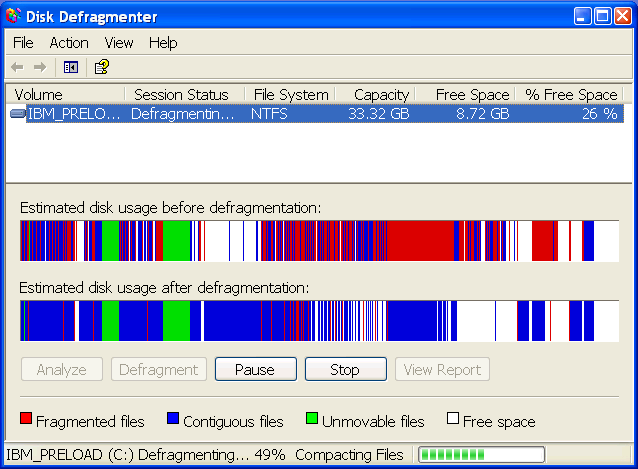
Our passion is digital marketing. Just as every business competes to attract customers online, there are other challenges that go across industries. In January, we explored one such issue – time management. Beyond professional or organizational, time management skills have personal, educational, familial, communal and even mental impact! At WSI Vital Marketing, we’ve taken to hosting a monthly roundtable focusing on one challenging topic with up to 8 business leaders for 1 hour. As organizer, we curate a subject matter expert to lead the discussion; typically, after a 15-minute overview by our guest speaker, attendees share their experiences or ask questions for the remainder of the hour. Our speaker on this topic was Lana Kitcher, Productivity Coach.
OUR SUBJECT MATTER EXPERT AND WHAT SHE SAID
Lana’s presentation was entitled “three overly simple, but completely underutilized strategies for making more time.” She began by declaring that:
- The modern environment has many built-in distractions
- Time is finite and not renewable
- Our culture values busyness over effectiveness
So, to use our limited amount of time effectively, she advises to “DO LESS BETTER.” Lana’s suggestions:
- Reverse your schedule, emphasizing yourself or your priorities first
- Stop multi-tasking, which isn’t really a thing, anyway
- Remove email (or other technology) as your busyness crutch
Explaining her three simple time management tips, Lana cited the Pareto Principle (the 80/20 rule) for the first maxim. For her second directive, she asserts that multitasking is not possible; it is just context switching which results in wasted time, less concentration and more errors. Worse still, it can take up 25 minutes to refocus on the initial task.
Finally responding to emails or other disruptions as they arise derails your schedule. While receiving such attention boosts our ego, emails typically elevate someone else’s priority – regardless of how trivial it may be. Don’t respond to emails continuously throughout the day. Rather, carve out specific times of the day when you’ll reply to email. Spend more time staying focused on specific activities by minimizing interruptions. Lana used the powerful imagery of disk “defrag” to help us visualize “time blocking”. By making related data contiguous, data searching becomes more efficient for hard drives. Similarly, by batching activities, we increase productivity, decreasing the time needed for tasks. Can a fragmented disk play as expected anyway?

OUR ATTENDEES AND WHAT THEY ASKED
Our attendees included a couple of designers who created their own brand, a branch manager of a healthcare outlet, a content editor for a large hospital group, and an administrator at a nearby college. This eclectic group included:
- Solopreneurs at the top of their organization, but with an informal network of suppliers
- Senior managers who nevertheless have bosses and staff
- Individuals in a collegial setting where ideas have more currency
So, some of the pushback from this group:
“I’m challenged with not only managing my own time, but also feeling stressed from task lists from both people above and below me on the organizational chart.”
“I find it faster to do certain things myself than to teach someone how to do it.”
“I don’t like disappointing people by telling them no.”
“There are things that I don’t want to do, but kind of have to…”
“I hear you about disruptions, but sometimes, you have something that will just take 60 seconds. I’d rather get it over with than allow it to languish.”
“I used to over-schedule. Now, I batch my days. Tuesdays are Quickbooks days. Today, I had to do a lot of family stuff, so it is a low brain function day of filing and cleaning my desk. Tomorrow, I’ll design.”
Lana endorsed the “batch day” idea. She added that “pain tasks” (routine operational) had to be completed and balanced against “game tasks” (which move your business forward). She was also onboard with the “two minute rule” of getting small tasks out the way – albeit in bunches.
As far as “people pleasing,” her conclusion was ultimately until you value and respect your time, it is difficult to expect it from others. She shared that some considered the practice “inadvertent manipulation.” Better to be authentic, even at the risk of offending some.
Her main message was value effectiveness over busyness. Select companies that have values that fit your lifestyle. Close your door or block your calendar for “alone time” versus “open office time.” Delegate tasks to associates, even at the risk of slower turnarounds initially. Otherwise, you enforce dependency and risk becoming a bottleneck.

OUR SUMMARY AND TAKEAWAY
The suggestions shared by our SME and our attendees were on point. Effective time management makes the distinction between urgent versus important tasks, efficient versus essential.
I’m reminded of a line from a track by D’Angelo titled Africa:
Knowledge wisdom is
Understanding what we need…
And remember what you already know…
Having worked with clients who possibly provide, say, 25 services, I always discourage them from talking about each service equally. It is rarely the case that each service delivers 4% of their revenue. Rather, following the 80/20 rule, I steer them towards discussing their top 2 – 5 services that provide 60% to 90% of their sales. Sweep everything else into “All Other” until another service becomes prominent.
By being better at fewer things, their brand becomes clearer, their focus sharper, and their space in customers’ mindshare defined.
Our next 8-1-1 is scheduled for February 17th. The topic will be “keeping remote employees engaged.” Our subject matter expert, Grant Schneider of Performance Development Strategies, will begin our discussion.
Stay Connected